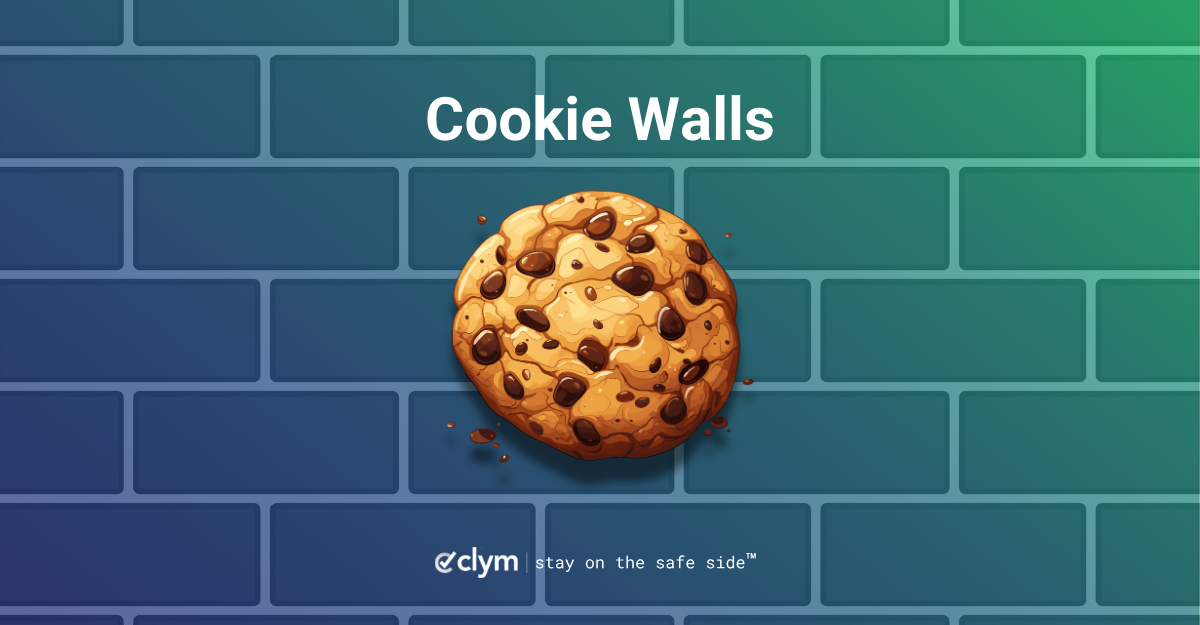What are Cookie Walls and are they GDPR Compliant?

What is a Cookie Wall?
A cookie wall is a mechanism used by websites to block access to their content unless the user consents to the use of cookies. It essentially forces users to either accept cookies, which track and collect personal data, or be denied access to the website. This practice is unfortunately common as websites attempt to comply with data privacy regulations such as the General Data Protection Regulation (GDPR) and California Privacy Rights Act (CCPA) while still gathering valuable user data.
Speak to one of our experts today about your compliance needs. Get in touch with us.
Are Cookie Walls Legal Under the GDPR and CPRA?
Likely not. GDPR and CPRA require that consent for data processing must be freely given, specific, informed, and unambiguous. The European Data Protection Board (EDPB) has stated that consent obtained through cookie walls is not considered freely given for purposes of GDPR, as users are essentially coerced or pushed into consenting in order to access the website. Consequently, cookie walls are generally viewed as non-compliant with GDPR and CCPA.
Example of a Cookie Wall
A typical example of a cookie wall might involve a website that presents users with a full-page overlay, informing them that access to the site's content is contingent upon accepting cookies. This overlay prevents any interaction with the site until the user agrees to the cookie policy.
What's the Difference Between a Cookie Banner and a Cookie Wall?
A cookie banner generally appears as a small pop-up at the top or bottom of the webpage, informing users about the site's use of cookies and providing options to accept or manage cookie preferences. Unlike cookie walls, cookie banners generally do not block access to content and allow users to continue browsing the site regardless of their choice, unless specifically restricted by regulation.
Your Guide on Cookie Consent Banners

What Does a Legal Cookie Wall Alternative Look Like?
Legal alternatives to cookie walls focus on obtaining genuine user consent without restricting access to content. These alternatives often include:
- Granular Consent Mechanisms: Allowing users to choose specific types of cookies they are willing to accept.
- Paywalls: Offering an option to access content without cookies in exchange for a fee.
- Freemium Models: Providing basic access to content without cookies, while premium features require consent to cookies.
Is a Paywall Considered a Cookie Wall?
A paywall is generally not considered a cookie wall as long as it provides a genuine alternative to consenting to cookies. If users can access content by paying a fee without being forced to accept cookies, the paywall model may be able to comply with GDPR requirements. This approach respects user choice and consent principles more effectively than cookie walls.
Example of a Paywall
Can I Use Cookie Walls Under CPRA and Other Data Privacy Regulations?
Global data privacy regulations have different requirements based on jurisdictions; using cookie walls is likely to be seen as contrary to the spirit of user control and privacy that CPRA promotes. It's crucial to review and comply with the specific requirements of each regulation applicable to your website.
Can I Get Fined for Using a Cookie Wall?
Using cookie walls that do not comply with GDPR can result in fines and enforcement actions from data protection authorities. The fines for non-compliance with GDPR can be substantial, up to €20 million or 4% of the annual global turnover, whichever is higher. It is essential that your website's cookie consent mechanisms comply with GDPR and other relevant regulations to avoid such penalties. Other data privacy regulations apply their own fines and penalties for noncompliance, many of which are significant.
How Can Clym Help Change Your Approach to Cookie Consent with a Better Solution?
Clym offers solutions to help businesses comply with GDPR and other data privacy regulations without relying on cookie walls. Clym's platform provides features like granular consent mechanisms, customizable cookie banners, and alternative approaches to obtaining user consent. By leveraging Clym's tools, businesses can respect user privacy, facilitate compliance with regulations, and maintain a positive user experience.
See Clym in action today
Takeaways
- Cookie walls are generally non-compliant with GDPR and other data privacy regulations as they do not provide freely given consent.
- Alternatives like granular consent mechanisms, paywalls, and freemium models offer compliant ways to obtain user consent.
- Non-compliance with data privacy regulations can result in significant fines.
- Clym offers solutions to help businesses comply with data privacy laws without relying on cookie walls.
Michael is an experienced C-suite executive who has spent his career guiding organizations through an ever-evolving regulatory landscape. After starting his career at Ernst & Young, Michael worked as a CFO with large, global organizations before co-founding Clym to assist organizations of all sizes with their website regulatory compliance needs.
Learn More →FAQs about Cookie Walls
What is a cookie wall?
A cookie wall blocks access to website content unless the user consents to cookies.
Are cookie walls legal under GDPR?
No, cookie walls are generally not considered compliant with GDPR.
What is the difference between a cookie banner and a cookie wall?
A cookie banner informs users about cookies without blocking access to content, unlike a cookie wall.
What are legal alternatives to cookie walls?
Granular consent mechanisms, paywalls, and freemium models are compliant alternatives.
Are paywalls considered cookie walls?
No, if they provide an alternative to consenting to cookies.
Can I use cookie walls under CCPA?
CCPA does not explicitly address cookie walls, but they may conflict with its principles.
Can I be fined for using a cookie wall?
Yes, non-compliance with GDPR and other regulations can result in fines.
How can Clym help with cookie walls?
Clym offers tools for compliant consent mechanisms and user privacy solutions.

